
###country-name###

$0 billion
Russian assets are frozen
$0 billion
Confiscation of assets of the Russian Federation
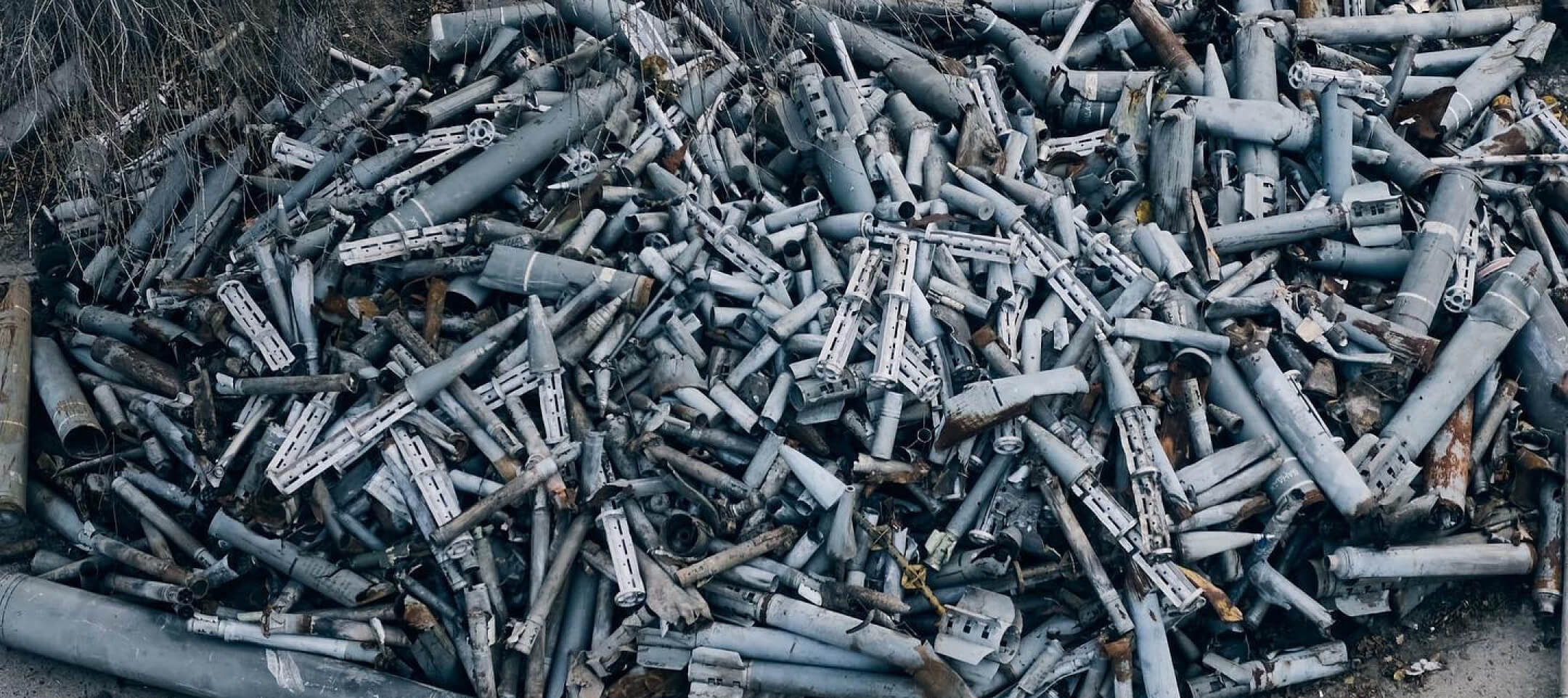
$0 billion
Ukraine's losses from the war
$0 billion
The frozen assets of the RF and its accomplices
$0 billion
Confiscated assets of the Russian Federation
We follow the confiscation of assets of the aggressor state and individuals responsible for the war
and share it with you
Learn more
Confiscation tracker
The project is implemented by the Institute of Legislative Ideas team
More about “Freeze and Seize”Map controls

map of confiscation of assets of the RF in the world


Assets are not frozen
Frozen
Creating mechanism
Speciallaw
Confiscation
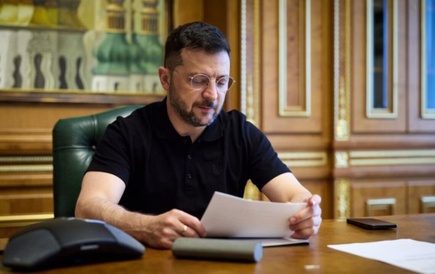
Volodymyr Zelenskyy has imposed sanctions on those whom russia uses in its propaganda
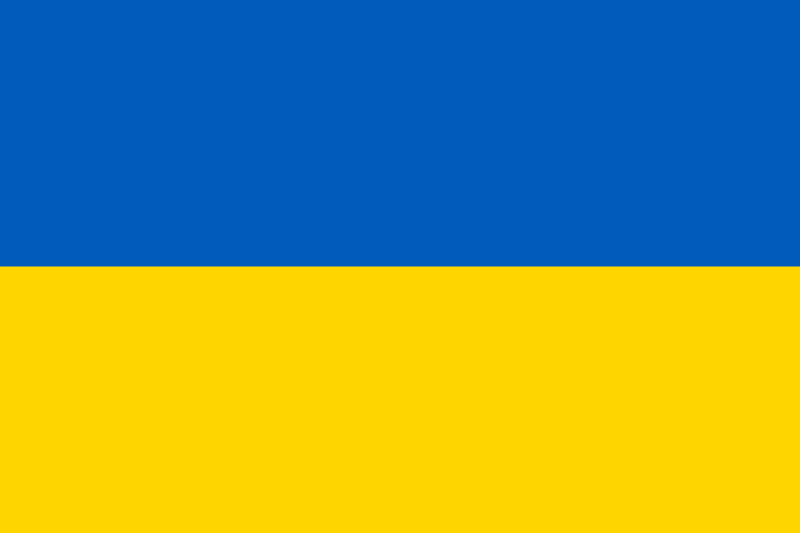
Ukraine
The President of Ukraine has imposed sanctions on individuals and organisations that justify aggression and are used by russia in its propaganda
17 Jan 2026

Ukraine
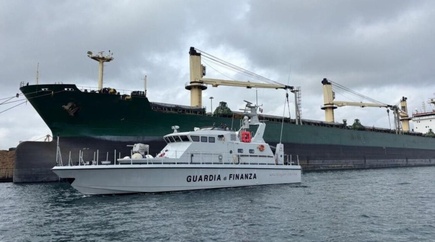
Italy detains ship carrying russian metals subject to sanctions

Italy
A vessel sailing from russian territorial waters in the Black Sea was detained in the Italian port of Brindisi
17 Jan 2026

Italy
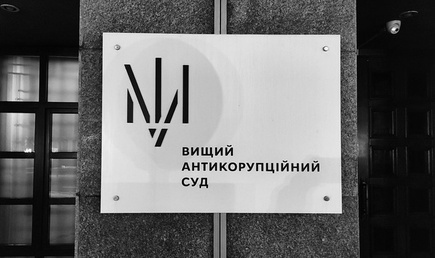
The HACC partially upheld the Ministry of Justice's claims against Konstantin Kevorkyan regarding the application of sanctions against him

Ukraine
The HACC partially upheld the Ministry of Justice's claims against Konstantin Kevorkyan regarding the application of sanctions against him as provided for by the Law of Ukraine …
16 Jan 2026

Ukraine


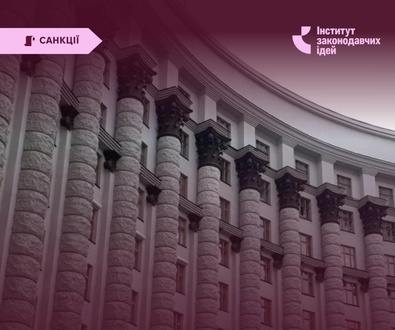
Analytical note on draft law №13606 in the context of the possibility of performing registration actions in relation to persons subject to sanctions
On August 7, 2025, the Cabinet of Ministers of Ukraine initiated the registration of a draft law “On Amendments to Certain Legislative Acts of Ukraine in the Field of State Regi…
11 Aug 2025

Analysis of the practice of the High Anti-Corruption Court regarding the application of sanctions in the form of confiscation of assets to the state budget for 2022-2025
This study presents an analysis of 56 cases of the High Anti-Corruption Court in which the sanction of asset forfeiture to the state was applied
19 Jun 2025
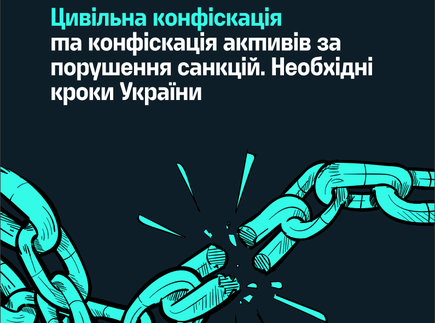
Цивільна конфіскація та конфіскація активів за порушення санкцій. Необхідні кроки України
#confiscation
Дослідження присвячене аналізу найкращих практик цивільної конфіскації активів та конфіскацій у межах кримінальних проваджень, а також шляхам удосконалення українського законода…
27 Nov 2024


Frequently asked questions
General questions

Why should the assets of the aggressor state and it's accomplices be confiscated?
Since the beginning of the full-scale invasion of Ukraine, the actions of the Russian Federation and individuals who actively contribute to the aggression (Russian politicians, propagandists, oligarchs, etc.) have caused enormous economic loss, which as of early 2025 is estimated by the World Bank at more than $524 billion.
First, the damage caused by the war is now being covered by Ukraine and its international partners. Neither Russia nor the Russians are willing to pay for the damage caused until Russia is completely defeated on the battlefield, which they do not think to be plausible. Confiscation of their assets will make it possible to shift the economic burden of rebuilding Ukraine onto the shoulders of the perpetrators right now and will allow to compensate for the damage before the war ends.
Second, those responsible for the war have not lost anything personal yet, as they have been adapting to the sanctions since 2014. Realizing that the freezing of their assets is the most severe sanction they may face and there is no risk of actually losing those assets, responsible persons do not have proper incentive to change their course of actions. The continuation of the war thus is not assosiated with personal losses for these people. In fact, some State Duma deputies have been making profits from renting out property frozen in the EU for many years.
Third, implementing confiscation measures ensures prevention of the similar actions by other aggressors in the future. From now on, such crimes will not go unpunished, neither for countries nor for individuals who contribute to aggression. Anyone who intends to commence a war of aggression or support it in any way will have to realize that they will have to pay for it with their wealth. Personal liability with the prospect of losing personal property will constitute a strong incentive to stop supporting military aggression not only against Ukraine but also against any other country in the world.

Is such confiscation lawful?
Debates in various parliaments and governments around the world have shown that this issue is one of the most vulnerable and may be easily manipulated with.
Currently, there exist international customs unfavorable for the purposes of confiscation which may be used by the aggressor state to avoid responsibility for the damages and losses it has inflicted.
However, implementing confiscation measures ensures prevention of the similar actions by other aggressors in the future. From now on, such crimes will not go unpunished, neither for countries nor for individuals who contribute to aggression. Anyone who intends to commence th agressive war or support it in any way will have to realize that they will have to pay for it with their wealth and resources. Personal liability with the prospect of losing personal property will constitute a strong incentive to stop supporting military aggression not only against Ukraine but also against any other country in the world.

What confiscation mechanisms exist and can be utilized?
The broad array of instruments can be used to confiscate the assets of the Russian Federation and war supporters.
States can employ the tools that are alreready in place, for example, confiscation within the framework of criminal prosecution.
The other tool is the so-called NCBF (Non-Conviction Based Forfeiture). For example, assets of persons engaged in mafia activities (in Italy) or corrupt officials (in Georgia) have already been confiscated in civil proceedings with a lower standard of proof and within a shorter timeframe. The tool could potentially be used against those who actively contribute to military aggression.
New mechanisms are being developed in the context of military aggression and the need to confiscate assets as a result of such actions. Ukraine has introduced special tools for confiscation of Russian state assets and assets of war collaborators.
Between May 2022 and July 2025, the High Anti-Corruption Court issued 70 decisions to fully or partially satisfy claims in cases involving the recovery of assets belonging to individuals or legal entities supporting Russian aggression for the state.
Similar legislation has been adopted in Canada. Special instruments are also being developed in EU countries and in the US, where relevant acts are being drafted or have already been submitted to parliaments.
Canada is the first G7 country to create a legal framework for the seizure and confiscation of assets of sanctioned individuals. The first precedent for the implementation of these powers was the order to seize $26 million from Granite Capital Holdings Ltd., owned by Russian oligarch Roman Abramovich.
The US has passed a law allowing the President's administration to confiscate Russian state assets in accordance with the provisions of the REPO Act and transfer them to Ukraine. The US Treasury Department has required financial institutions to report the existence of such assets, but no further progress on this issue has been reported.
In the UK, work is underway to amend the Sanctions Act to allow the freezing of Russian assets with a view to confiscation for compensation.
Similar mechanisms are already in place in the Baltic states. Latvia has a law on measures relating to real estate necessary to eliminate threats to national security, under which the Moscow House in Riga was confiscated and put up for auction. The proceeds will go to support Ukraine. Estonia has passed a law allowing Russian assets to be used to compensate for damages caused by Russian aggression.

What are the actions of civilized states with respect to the confiscation of Russian assets?
The cynical and brutal nature of the Russian invasion led to the fact that, despite the rather complicated balance of power in world politics, most countries unanimously condemned Russia as an aggressor. At the very beginning of the war, the vast majority of UN member states (141 out of 193) officially condemned Russia's aggression in Ukraine and voted for a resolution in the UN General Assembly, using the rather rare Uniting for Peace mechanism. This procedure bypasses the UN Security Council, where Russia's veto as a permanent member would have made such a statement impossible.
After the full-scale invasion of Ukraine on February 24, the sanctions policy towards Russia has become unprecedented. Russia has taken the lead in terms of sanctions imposed on a single country.
As part of its sanctions policy, the UK, for example, actively fines violations of sanctions and prosecutes such actions criminally, laying the groundwork for the future allocation of these funds to Ukraine's recovery. Lithuania has adopted amendments to the Law on Cooperation and Humanitarian Aid, which allow fines for circumventing sanctions to be directed exclusively to the reconstruction of Ukraine.
Along with numerous embargoes and the establishment of price caps on oil and petroleum products, countries have begun to freeze the assets of Russia and its accomplices in the war on their territory. Today, the total volume of state (assets of the Central Bank of the Russian Federation) and private (assets of sanctioned Russians) assets in the world is estimated at over $300 billion. However, this amount is approximate, as not all countries have provided information on the amount of frozen assets in their jurisdictions.
In addition to the political decision to freeze assets, countries are actively working on the legal front to find and implement the necessary mechanisms for the further confiscation of frozen assets and their transfer to Ukraine. We have described the progress in this activity in the question above.

Why don't all countries support the confiscation of Russian assets?
Discussions between supporters and opponents of confiscating Russian money continue. From a political point of view, the US, the UK, Canada, and Estonia are in favor of this idea, while Germany, France, Italy, Hungary, the ECB, and the IMF are not very enthusiastic about it.
Some point to the risks to the stability of the euro as a currency, while others note that third countries may decide to withdraw their assets from countries that initiate such seizures, and also talk about possible protracted international litigation. As for Germany, it is likely that the country fears setting a precedent that would lead to new lawsuits against Germany for crimes committed during World War II.
China, Saudi Arabia, and Indonesia have taken a radical stance on the confiscation of frozen Russian assets. Their concerns also boil down to setting a precedent — in other words, these countries fear that they may be next.
The idea of using the proceeds from frozen Russian assets has found more supporters because of the lower risks involved. The EU hopes that using only the interest (rather than the assets themselves) will help avoid accusations of violating international law.
It is evident that countries that have signed the European Convention on Human Rights face legal difficulties in confiscating any property — this is only possible by court order and with proven guilt. At the same time, given the current challenges, the international community must act decisively: use the countermeasures mechanism provided for by UN norms to seize and direct all €300 billion of frozen Russian assets, not just the profits from them, towards the protection and reconstruction of Ukraine.

What is the current condition of frozen Russian assets?
Today, approximately $300 billion of Russian Federation state assets remain frozen in various jurisdictions. This amount is approximate, as not all countries have provided information on the amount of frozen assets in their jurisdictions.
More than $210 billion is held by EU countries (in particular Belgium, due to the location of the headquarters of the international central depository Euroclear in Brussels), with the rest accumulated in the US, the UK, Canada, Japan, and other allies. You can find detailed information about the amounts of assets on our interactive map.
Since 2022, the international community's approach to frozen Russian assets has gone through several important stages. First, in 2022, a massive freeze of Russian assets began, and the ILI recorded the first cases in the Confiscation Tracker, initiating systematic monitoring.
By 2023, political rhetoric at the G7 and EU levels had evolved into official declarations on the need to create a compensation mechanism using these assets. Then, in 2024, the focus shifted to the doctrine of countermeasures, which provided a legal basis for the confiscation and transfer of assets to Ukraine.
At the turn of 2024-2025, this process culminated in the first large-scale decisions - the EU adopted a mechanism for using proceeds from frozen assets and launched the ERA initiative, which set an important precedent for other jurisdictions.
As a result, today the Confiscation Tracker contains hundreds of decisions in more than twenty countries, demonstrating a gradual but steady transformation of the global approach.

How are countries using frozen Russian assets right now?
In February 2024, the EU Council adopted a decision requiring depositories holding more than €1 million in frozen assets of the Central Bank of Russia to account for the income received separately without reinvesting it. This decision paved the way for the first-ever practical mechanism for using the aggressor's funds for the benefit of the victim state.
By May 2024, the mechanism for transferring interest income from Euroclear had been endorsed by EU member states and was already in operation. Ukraine received the first tranche of approximately €1.55 billion in July 2024, followed by a second tranche of approximately €2 billion expected in March 2025, but there is no official information about its implementation yet. It is expected that this mechanism will allow mobilizing approximately €3 billion annually to support Ukraine.
Belgium has previously set a precedent by transferring taxes received from Euroclear's depository income to Ukraine. In May 2023, Belgium already transferred €92 million to Ukraine. It is known that in 2024, frozen Russian assets brought Belgium €1.7 billion in tax revenues. However, there is no confirmed information about the transfer of these funds to Ukraine.
Another important and currently most financially effective mechanism is the ERA (Extraordinary Revenue Acceleration) initiative, a joint program of the G7 countries that provides Ukraine with a $50 billion loan from future revenues from frozen Russian assets. The US and the EU are expected to provide $20 billion each, while Japan, the UK, and Canada will share the remaining $10 billion. So far, Ukraine has received a total of about $17.6 billion under the ERA program: more than $7 billion from the EU, $3 billion from the UK, more than $4 billion from Canada, and $3 billion from Japan.
This has not only provided powerful financial support, but also confirmed that the aggressor's assets can be used on a larger scale even before a final decision on their complete confiscation is made.
The EU is now actively discussing the idea of creating a separate investment fund to manage frozen Russian assets held in Euroclear. It involves a shift from Euroclear's conservative strategy to more active investment, which is a change in approach to asset management rather than confiscation. More risky investments will allow Ukraine to receive significantly higher revenues for economic recovery and strengthening its defense capabilities. However, most EU countries do not yet support this idea. Belgium, which is the administrator of most of the frozen assets, is categorically opposed to the use of this mechanism.

Private assets

Private assets
It is well known that Russian politicians, propagandists, oligarchs, and others who actively contribute to the war against Ukraine and have made enormous fortunes due to their proximity to the Putin regime prefer to keep their wealth abroad. Despite their hatred of everything 'Western' and threats of nuclear strikes, they do not hesitate to own mansions, yachts, and private jets in countries 'unfriendly' to Russia.
The confiscation of such assets, in addition to pursuing the goal of allocating funds for the reconstruction of Ukraine, constitutes a personal liability measure that can affect the behavior of a particular person.
It is the individual liability of aggressors and its inevitability that can become the personal risk that can actually make the responsible persons change their behavior in relation to the aggression and prevent further wars in the world.

How many private assets can be confiscated?
Given the large amount of assets that war supporters hold around the world, different approaches to confiscation in different countries, and the efforts to hide assets in offshore companies and through third parties, it is almost impossible to estimate the exact amount of assets. However, we can use as a basis the estimate of the frozen private assets of sanctioned persons. Although due to the active dynamics of blocking and different approaches to publishing this information, our estimates show that as of the beginning of 2025, more than USD 20 billion of such assets were frozen worldwide.
More information on which countries froze most and which countries froze less can be found on our interactive map.

Has any country already confiscated the assets of war collaborators and what is hindering the progress?
Asset freezing does not allow transferring them to Ukraine. For this purpose, confiscation must be exerted, which, in turn, requires the development of an appropriate legal mechanism. Naturally, Ukraine was the first country to introduce a special mechanism for confiscating private assets of war collaborators. As of the beginning of 2025, there are more than 70 judgments on the confiscation of assets of Russian oligarchs, propagandists and politicians.
Canada, using a newly enacted law, is confiscating the assets of Russian oligarch Abramovich; the United States, employ the existing civil forfeiture mechanism and a corresponding amendment to the Budget Act to transfer to Ukraine $5.4 million confiscated from Russian media mogul Malofeyev accused of circumventing sanctions.
Despite the significant amount of frozen assets, some countries, including the EU, have been reluctant to confiscate them, as they are looking for a proper, legally reliable tool that would not violate the right to private property. Compliance with the highest standards of human rights protection and the right to a fair trial is the key prerequisite for such confiscation, so the search for the proper avenue is still in progress.

Sovereign assets

What are sovereign assets?
The sovereign assets of the Russian Federation are funds and property owned by the Russian Federation as a state, as well as funds and property owned by the companies whose authorized capital is controlled by the Russian Federation.
Since the beginning of the full-scale invasion of Ukraine, most countries holding the funds of the Central Bank of the Russian Federation have blocked them. These include Germany, France, the United Kingdom, the United States, Japan, Austria, and Canada. Only China has not blocked Russian funds in its accounts.
According to the information published by the Central Bank of the Russian Federation and other statistics, it is about $300 billion. As of 2025, Europe, in particular, is trying to update the data on the amount of blocked sovereign funds.
In addition to the Central Bank's funds, Russian state assets consist of several hundred property objects around the world, in addition to companies with a Russian share in the authorized capital owning real estate worth billions of dollars.
All these assets of the aggressor state should be confiscated and transferred to Ukraine for its reconstruction and compensation for the damage caused.

Can we expect the assets of the Russian Central Bank to be confiscated?
No doubt, the confiscation of $300 billion belonging to the aggressor state would be a significant support for Ukraine. The need for the confiscation is repeatedly emphasized by senior officials of Ukraine and some other countries.
However, the world hesitates to confiscate and transfer the frozen assets of the Central Bank of the Russian Federation. The first reason is the sovereign immunity of the Russian Federation which prevents interference with the property rights of a state. Moreover, the current international customary law provides special protection for the property of states' central banks. The second reason is the lack of political will, as this could set a dangerous precedent that would negatively affect the willingness of states to hold assets in other countries.
Currently, the search is underway for an optimal mechanism for the confiscation of these assets that would be acceptable from the point of view of international law. Ukraine's most determined partners argue for the need to conclude an international treaty that would allow such confiscation, while a moderate partners are only willing to send Ukraine the proceeds from the management of frozen assets.

Does the Russian Federation have any property abroad that can be confiscated?
Apart from embassies' and consulates' property, the aggressor state owns hundreds of land plots and real estate objects - apartments, estates, religious buildings, etc.
Information on Russia's foreign property used to be publicly available. However, in 2015, after the annexation of Crimea, the first sanctions and the freezing of assets to enforce the Yukos judgment, this information was hidden.
According to Russian journalists, based on the report of the Accounts Chamber of the Russian Federation, as of 2012, Russia owned 973 objects abroad - 166 land plots and 807 buildings and premises, mostly in the capitals of the countries. These assets are still directly managed by the Russian state, and therefore it is likely that these objects serve as a cover for the activities of the aggressor country's agent base around the world.
For example, Latvia has a law on measures relating to real estate necessary to eliminate threats to national security, under which the Moscow House in Riga was confiscated and put up for auction. The proceeds will go to support Ukraine.
At present, it is difficult to assess the exact value of such assets. It may reach hundreds of billions of dollars, which should be transferred to Ukraine.






